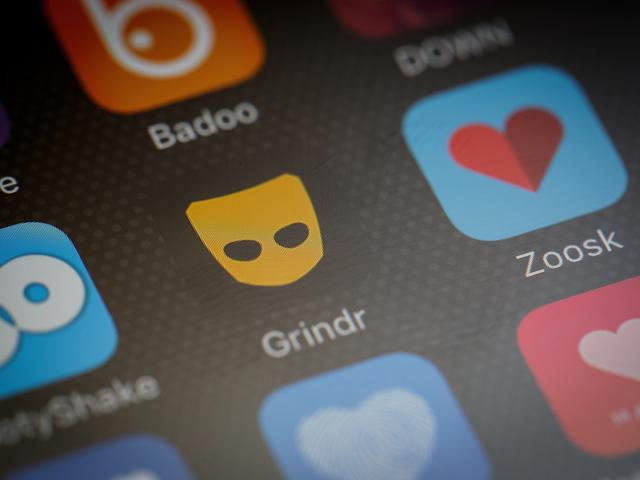Grindr recently created their “Kindr” initiative with the goal of eliminating toxic masculinity and racism on their platform. Grindr is the infamous gay dating app, where users are given unlimited access to an endless sea of smiling faces, bare torsos, and blank avatars. Unlike Tinder or Bumble, which require users to match before either can approach one another, Grindr eliminates the waiting game by allowing users to be proactive in messaging those they are attracted to.
The downside of this is that this open approach to dating has allowed for toxic masculinity and racism to run rampant. On Grindr, this comes in the form of racial slurs being thrown around with queer people of color, profiles having phrases like “no fats, no femmes, no HIV+,” or users beginning conversations with a slew of lewd pictures. Thus enters Kindr, the latest initiative by the app to provide an educational approach to ending these issues. This new approach includes several targeted in-app ads, a new set of user policies that attempt to restrict offensive language, and a YouTube series that touches on various stigmas in the gay dating community.
Kindr is a step in the right direction, albeit a small one. What the initiative succeeds in is creating a more positive in-app experience for users from marginalized backgrounds. The updated guidelines bar users from posting hateful content in either their bios or in the messages they send to other users, as well as allowing recipients of any hateful dialogue to report the sender, leading to their eventual removal from the app.
However, this approach only serves to put a bandage on the larger issue of the racism and toxic masculinity that became more prominent in the gay dating scene after the combination of hypersexuality and homosocialization began decades ago.
Homosocialization is the process of gay people building nonsexual relationships with one another, finding mutual interests based on their shared sexuality. Hypersexuality, on the other hand, is casual hookup culture taken to an extreme. Because gay people have traditionally been repressed, both hookup culture and queer relationship building were forced to take place in the same contexts, usually in gay bars, clubs, and community parks. These two competing types of interactions having to share the same setting led to the idea that casual sex is something to be expected when meeting with another gay person.
These two concepts evolved together as societal views on homosexuality became increasingly more favorable, albeit at a cost: Where gay people from all backgrounds used to find common ground and mutual understanding for one another, the new societal acceptance of the label “gay” allowed for those without other marginalizations to feed their own exclusionary sexual desires. Unfortunate divides became commonplace in gay dating on the basis of race, gender, HIV status, and other marginalizations. This resulted in an app like Grindr being built upon overt “preferences;” the platform allows users to dabble in problematic sexual activities such as race play and trans fetishization because it is built on these historical grounds of socially overt hypersexuality.
However, that does not mean Grindr should not be proactive in their attempt to stop these negative dating occurrences. Kindr is a step in the right direction, but the new initiative fails to educate removed users about why racism and toxic masculinity are wrong in the first place. Unlike Tinder, which has a limited number of ways to create an account, Grindr has no safeguards in place, so even if a user is banned, they can simply create a new account without facing any repercussions.
If Grindr wants to truly make an impact in the discussion of gay racism and toxic masculinity, then the app must find a way to ensure that banned users either remain removed from the app or successfully receive education on these issues before reentering the platform. This can include accounts only being able to be created with either a phone number or Facebook account (reducing the number of times a user can rejoin), creating a more comprehensive educational platform that allows for users to fully learn why racism and toxic masculinity are wrong, and most importantly, providing information on how to get in touch with counselors and therapists to work through any internal issues that may still remain.
Combating these negative issues in the gay community will set a precedent for fighting racism and toxic masculinity on a broader, societal level. Where one social community finds success, others are likely to take those actions as examples and follow suit. If Grindr takes the necessary steps to address the root of racism and toxic masculinity rather than to put a bandage over it, then, with time, the gay dating scene, as well as society at large, will become all the more Kindr.









Dustin • Oct 24, 2018 at 2:12 pm
Your suggestions seem very problematic. If you are arguing that people shouldn’t be rude or racist when rejecting someone, I would agree. Your argument, however, seems to be that the rejection is problematic itself – which I disagree with.
It doesn’t matter what reason I am rejecting someone for sex because I don’t need a reason to reject someone for sex. Saying my sexual habits are exhibiting “toxic masculinity” is extremely hypocritical. If our civil rights movement taught us anything, its that it is up for individuals to decide which aspects of their sexual attraction is problematic and needs to be addressed, not society.